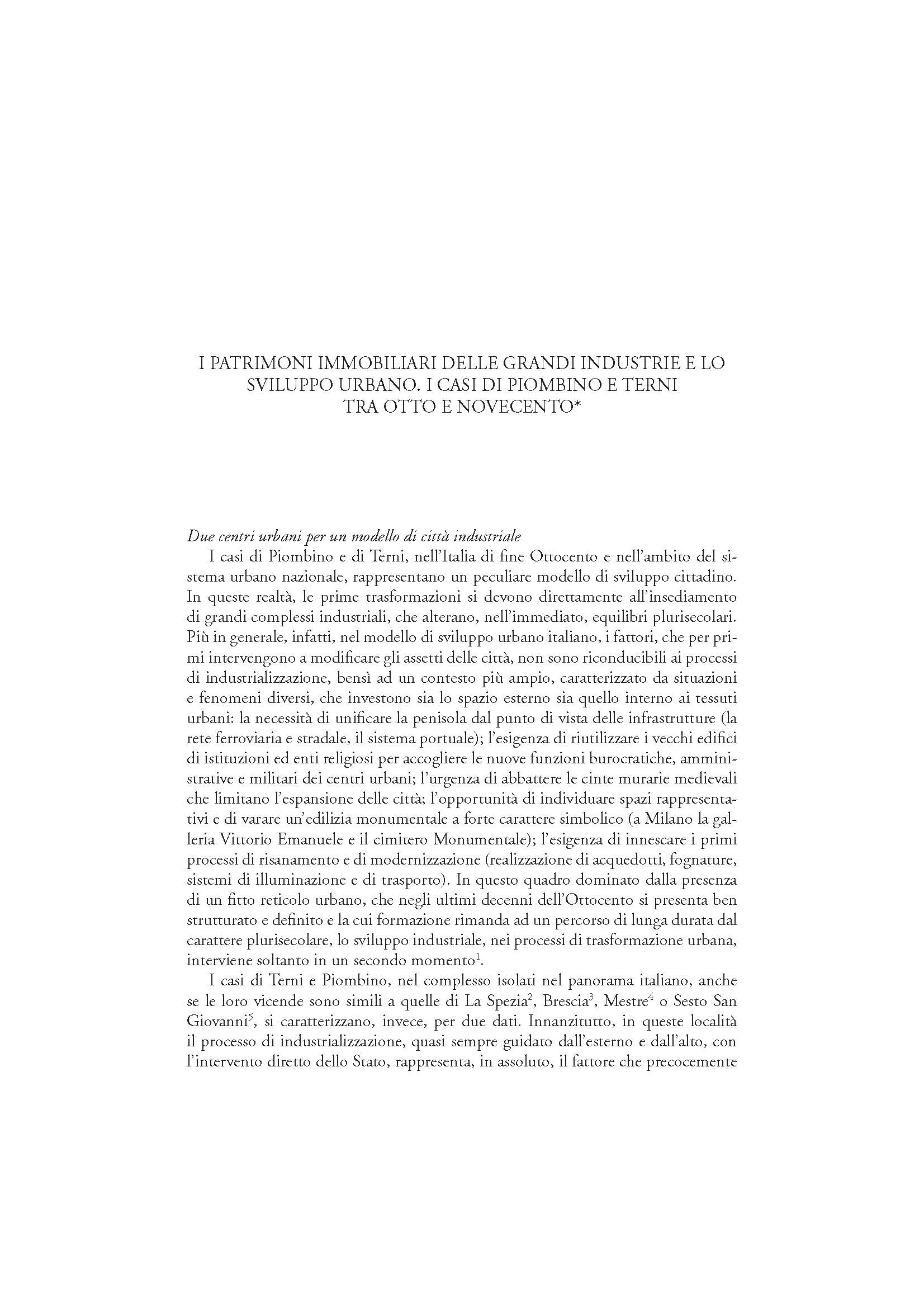I Patrimoni immobiliari delle grandi industrie e lo sviluppo urbano. I casi di Piombino e Terni tra Otto e Novecento
6,00 €
The cities of Piombino and Terni represent a distinctive model of city development in the Italian urban system at the end of the nineteenth century. In these particular cases the fi rst transformations were produced by the arrival of the large industrial complexes which were able to alter the equilibrium of centuries. In these cities, with their industrial confi gurations, the companies are not only the only to provide lodgings, workers’ quarters and villages, or to infl uence the city administrations and the expansion of the urban fabric, they also control all the available land on the edges of the city space, exerting complete power over the confi guration of the built up area and the transformation of the entire landscape.
The cities of Piombino and Terni represent a distinctive model of city development in the Italian urban system at the end of the nineteenth century. In these particular cases the fi rst transformations were produced by the arrival of the large industrial complexes which were able to alter the equilibrium of centuries. In these cities, with their industrial confi gurations, the companies are not only the only to provide lodgings, workers’ quarters and villages, or to infl uence the city administrations and the expansion of the urban fabric, they also control all the available land on the edges of the city space, exerting complete power over the confi guration of the built up area and the transformation of the entire landscape.

